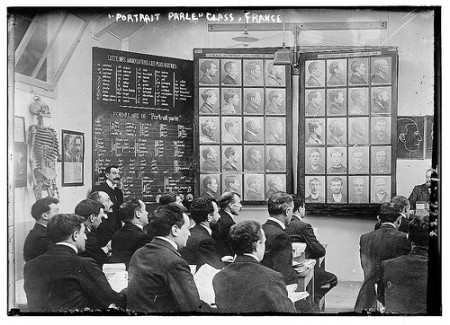Krótko mówiąc
Plenty of THATCamp participants are interested in picking up new skills from one another, so you might want to pre-arrange a few workshops to take place during your THATCamp. (Zauważyć: our workshop series used to be called „BootCamp,” Termin mamy teraz przestarzałe. Also note that our Mellon fellowship program has ended as of 12/5/2011.)
Finding workshop instructors
As a THATCamp organizer, you might decide up front what workshops you will offer and who will teach them, or you might crowdsource those decisions to your THATCampers, or else you might do some combination of both. You might know some talented people in your area (perhaps even you or your co-organizers) who would be more than willing to teach a workshop at your THATCamp, and you could therefore set it all up beforehand. Alternatively, you can ask people who apply to your THATCamp „What would you like to learn?” and/or „What would you be willing and able to teach?” and plan your workshop offerings based on the answers to those questions.
If your THATCamp applicants have indicated that they’d like a workshop on a particular skill or topic, but you can’t find a qualified volunteer instructor in your region or among your applicants, post to the THATCamp forum with a request for help.
Scheduling the workshops
Organizers are increasingly saying that having a separate day dedicated to workshops is a good idea. Zobaczyć, na przykład, THATCamp Virginia’s dedicated workshop day, which took place before an additional day and a half of unconferencing. Some workshops have run concurrently with unconference sessions, jednak, as an educational track through the unconference, also with good success: patrz na przykład THATCamp New England’s schedule with workshop sessions incorporated. (Zauważyć: many participants did say in the evaluations that they’d have preferred that the workshop training sessions take place on a separate day.)
Giving participants workshop information
On a page on your website, you should give the following information for all workshops:
- Title
- Instructor’s name (preferably linked to a profile)
- Prerequisites (knowledge, skills, accounts, oprogramowanie)
- Difficulty level of proposed workshop
- Description
Curriculum
We have developed a broad curriculum to help you plan workshops at THATCamp. There can be as many workshops as you like, and they can all fit under one skill heading or under several different skill headings. We advise that all workshops should be wprowadzający (especially those dealing with markup and programming languages; assume no prior knowledge of coding) and should emphasize pierwsze zasady, tło, i kontekst; workshops other than those under the first two headings should also include at least one hands-on exercise (though nothing harder than „Halo, world!”). Workshop examples are given below; other pertinent workshops are more than welcome. See the page on getting training at workshops for examples of past and upcoming workshop offerings.
- Zrozumienie historii techniki i humanistyczne
- Krótka historia komputerów
- Krótka historia cyfrowych Humanistycznych
- Zrozumienie bieżących prawnych i społecznych związanych z technologii i nauk humanistycznych
- Kwestie praw autorskich w humanistyce
- Kwestie gospodarcze w komunikacji naukowej
- Google Book Search rozliczenie
- Znalezienie i zarządzania informacjami humanistyczne
- Google Scholar / Bazy danych
- Google Book Search
- Zotero / Mendeley / CiteULike
- Digitalizacja, redagowanie, organizowanie, wydawniczy, i zachowania humanistyczne materiały
- Tekst / obraz / audio / Digitalizacja wideo
- XML
- XSLT
- TEI
- EAD
- Omeka
- Standardy metadanych
- Indeksowanie
- Połączone dane
- Bazy danych i struktury danych
- Zbieranie, interpretowania, Analizując, i manipulowania danymi humanistycznych
- Text mining
- Narzędzia wizualizacyjne
- Web analytics
- Yahoo! Pipes
- Otwarte Layers
- ArcGIS
- Tworzenie, przedstawianie, i publikowanie badań humanistycznych
- HTML
- CSS
- Photoshop
- Projekt graficzny
- Architektura informacji
- Typografia
- Testy użyteczności
- CommentPress / digress.it
- WordPress
- PowerPoint / Myśl przewodnia / Prezi
- Tworzenie wideo
- Audio / podcast tworzenie
- Praca wspólnie, formalnie i nieformalnie
- Zarządzanie projektami
- Projekt budżetu
- Pierwsze finansowanie projektów
- Wiki
- Google Docs
- Social media
- Używanie języków programowania i narzędzi
- JavaScript
- PHP
- MySQL
- UNIX
- Perl
- Wyrażenia regularne
- Yahoo! Pipes
- Google Inventor for Android



